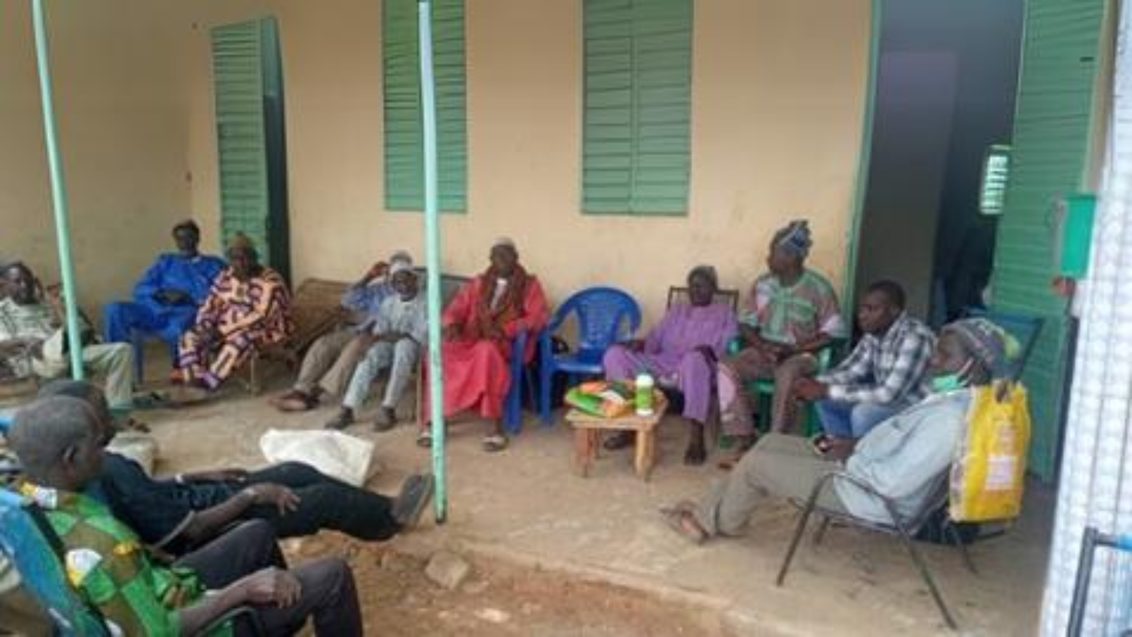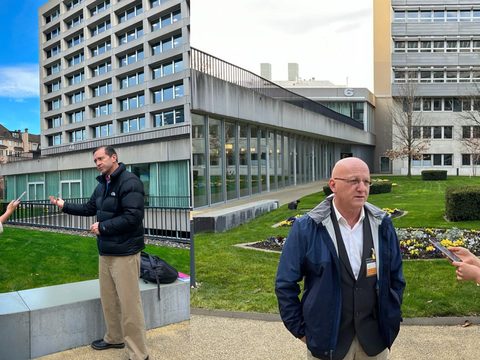A Game-Changer for Maize Production in Mali

Yellow Maize Production Surge in Mali with the Kabamanoj variety
In a groundbreaking development, the adoption of the yellow maize hybrid seeds known as 'Kabamanoj' is revolutionizing maize production in Mali. This high-yielding maize variety has the potential to generate a remarkable 50-110% increase in yields compared to traditional maize varieties normally used by smallholder farmers. This is how SFSA is facilitating the adoption of this variety.
The cooperative known as 'Kaba Nafan' recognized the immense potential of Kabamanoj and had already sown these seeds on half of their 102.5 hectares of land across various villages including Kouguè, Cinsina, Garré, Kolonto, Kaniko, N'Gountjina, and Walosso. However, their ambitions to acquire 2 tonnes of Kabamanoj seeds from the seed company 'Mali Protection des Cultures (MPC)' were hindered by a lack of financial resources last year. Consequently, they settled for other maize seed varieties with lower yields.
Fortunately, the Seeds2B-PASTTA project stepped in to conduct a marketing trial with Kabamanoj variety and developed a comprehensive business plan to showcase the advantages of this variety to smallholder farmers. Through compelling results demonstrating higher returns on investment compared to the varieties the cooperative had initially purchased, the members of 'Kaba Nafan' were convinced of the benefits of Kabamanoj variety choice. They decided to invest in this variety for the upcoming campaign. Recognizing the financial constraints faced by 'Kaba Nafan', the PASTTA project facilitated a crucial business-to-business (B2B) contact between the cooperative and MPC. This contact allowed the cooperative to access Kabamanoj seeds at a wholesale price.
Profitability is and remains the most crucial factor when considering investments in agri-economic activities. Despite the inherent risks in farming, the profit yielded by utilizing Kabamanoj seeds presents a valuable opportunity for numerous Malian smallholders.
Aboubacar Diarra, PASTTA Mali country coordinator
The adoption of Kabamanoj variety by Malian smallholder farmers has been steadily increasing and is benefiting all. The smallholder farmers have not only their incomes improved, but they also gained better financial education and resilience, while contributing to food sufficiency in the region. Furthermore, the seed system has witnessed significant development, and the MPC company business is thriving, expanding its partnerships and market reach. Lastly, the significance of agricultural cooperatives is being underscored in the area, highlighting their role in facilitating technology adoption among smallholders.
As the harvesting season approaches its end in December 2023, B2B meetings are set to be organized between the 'Kaba Nafan' cooperative and selected off-takers. These meetings aim to facilitate the marketing of the cooperative’s surplus production at lucrative prices. Under the leadership of the SFSA Agriservices programme, the initial targets of these meetings include 'Togou SARL' in Bamako and the 'Unité de Transformation et de Séchage Mariam Traoré (UTS-MT) SARL' in Koutiala.
The success story of the 'Kaba Nafan' cooperative exemplifies the positive impact of collaboration, improved seed variety access, and the adoption of modern agricultural practices on enhancing smallholder farmers' livelihoods and contributing to a sustainable food production.
| In Numbers |
|

